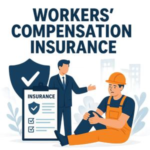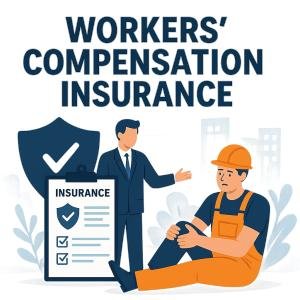
Security Guard Workers’ Comp Mod Reduction Case Study: From 1.6 to 0.9
August 2, 2025
Top 10 Ways Home Health Agencies Can Cut Workers’ Comp Costs This Year
August 2, 2025
In today’s dynamic event management landscape, ensuring the safety adn security of attendees is paramount. For event organizers in Georgia, the use of professional event security guards has become an essential component of accomplished operations. However, managing seasonal staffing fluctuations and maintaining strict compliance with workers’ compensation regulations present unique challenges in this sector. This article explores key considerations for event security firms and organizers in Georgia, focusing on effective strategies for seasonal workforce management and adherence to workers’ compensation requirements, thereby helping stakeholders mitigate risks and uphold industry best practices.
Table of Contents
- Event Security Staffing Strategies for Seasonal Demand in Georgia
- Ensuring Workers’ Compensation Compliance for Security Personnel
- integrating Training Programs to Enhance Seasonal Staff Preparedness
- Best Practices for Managing legal and Regulatory Requirements in Event Security
- Q&A
- Final Thoughts
Event security Staffing Strategies for Seasonal Demand in georgia
Key strategies include:
- Cross-training staff to cover multiple roles, enhancing deployment efficiency during peak periods.
- Partnering with local staffing firms familiar with rapid onboarding and compliance requirements.
- Implementing technology-driven scheduling tools to swiftly adapt shifts based on real-time event demands.
These measures not only address immediate workforce needs but also reduce turnover and promote a resilient security presence, critical to maintaining a safe surroundings across diverse venues throughout the state.
| Season | Typical Events | Recommended Staffing Adjustment |
|---|---|---|
| Spring | Festivals, Sporting Events | +20% Temp Staff |
| Summer | Concerts, outdoor markets | +30% Cross-Trained Guards |
| Fall | College Football, Fairs | +25% Experienced Staff |
| Winter | Holiday Events, Conferences | Maintain Core Team |
Ensuring Workers’ Compensation Compliance for Security personnel
- Verify state-specific workers’ comp requirements and ensure timely premium payments
- Classify employees accurately based on job roles and exposure risks
- Document all safety training sessions and enforce mandatory protective measures
- Establish clear communication channels for accident reporting and claim filing
| Compliance Task | Recommended Frequency | Responsible Party |
|---|---|---|
| Employee Classification Review | Quarterly | HR Manager |
| Safety Training Sessions | Before Each Event Season | Training Coordinator |
| Workers’ comp Insurance Audit | Annually | Compliance officer |
| Incident Reporting & Claims Follow-up | Ongoing | Operations Supervisor |
Integrating Training Programs to enhance Seasonal Staff Preparedness
- Standard Operating Procedures (SOPs) aligned with local regulations and client expectations
- Hands-on crisis simulations to build confidence in real-world scenarios
- Health and safety compliance guidelines to reduce workers’ compensation risks
- Customer service skills to improve event attendee experiences
| Training Component | Duration | Key Benefit |
|---|---|---|
| Online Safety Modules | 2 hours | Consistent knowledge base |
| On-Site Practical Drills | 4 hours | Enhanced real-world preparedness |
| Communication Workshops | 1.5 hours | Improved team coordination |
Best Practices for Managing Legal and Regulatory Requirements in Event Security
| Compliance Task | Status | Notes |
|---|---|---|
| Background Check Completed | ✓ | Verified for all seasonal staff |
| Security Guard Licensing | ✓ | Licenses current and on file |
| Workers’ Comp Coverage | ✓ | Confirmed with insurance carrier |
| Safety Training Documentation | ✓ | Completed prior to event start |
Q&A
Q&A: Event Security Guards in Georgia - Seasonal Staffing & workers’ Comp Compliance
Q1: Why is seasonal staffing important for event security in Georgia?
A1: Seasonal staffing is crucial in Georgia due to the fluctuating number of events throughout the year, especially during peak seasons such as summer festivals and holiday celebrations. Adequate staffing ensures that security operations run smoothly, risks are managed effectively, and venues remain safe without overextending permanent staff or resources.
Q2: What challenges do event organizers face when hiring seasonal security guards?
A2: Organizers often encounter challenges such as finding qualified personnel on short notice, ensuring adequate training and certifications, managing scheduling conflicts, and maintaining consistent security standards. Additionally, compliance with state labor and insurance requirements, including workers’ compensation, adds complexity to seasonal hiring.
Q3: How does Georgia law affect workers’ compensation coverage for seasonal event security guards?
A3: In Georgia, workers’ compensation laws require employers, including security firms or event organizers, to provide coverage for employees, including seasonal workers if they meet certain eligibility criteria. Proper classification and coverage must be maintained regardless of the duration of employment to protect both employees and employers from workplace injury liabilities.
Q4: What steps should security companies take to ensure compliance with workers’ compensation regulations in Georgia?
A4: security companies must accurately classify workers, secure appropriate insurance policies, and maintain up-to-date records of all employees, including seasonal hires. They should also communicate coverage provisions with their seasonal staff and ensure that payroll reporting aligns with state requirements to remain fully compliant.
Q5: Can outsourcing event security staffing help with seasonal fluctuations and compliance?
A5: Yes, outsourcing to professional security firms specializing in event staffing can mitigate seasonal fluctuations and ensure compliance.These firms typically handle recruitment, training, and workers’ compensation insurance, allowing event organizers to focus on operational needs while ensuring that security personnel meet all legal and professional standards.
Q6: What are best practices for managing seasonal security staff at events?
A6: Best practices include conducting thorough background checks, providing specialized training tailored to the event type, establishing clear communication channels, implementing flexible scheduling systems, and maintaining detailed records for compliance and performance tracking. Regular audits of compliance with workers’ compensation and labor laws are also recommended.
Q7: How does proper workers’ compensation coverage benefit event security personnel and employers?
A7: proper workers’ compensation coverage ensures that injured employees receive medical care and wage replacement, reducing the risk of personal financial hardship. For employers, it limits liability exposure, protects against lawsuits, and demonstrates a commitment to workplace safety and legal compliance, which is critical in the high-risk environment of event security.
This Q&A provides a clear overview for businesses and event organizers on key issues related to hiring and managing seasonal event security guards in Georgia, especially focusing on workers’ compensation compliance and operational efficiency.
Final Thoughts
effectively managing event security staffing in Georgia requires a strategic approach that balances seasonal demand with regulatory compliance. Partnering with professional security firms experienced in seasonal workforce coordination ensures that events run smoothly while maintaining high standards of safety. Additionally, adherence to workers’ compensation requirements is essential to protect both employees and employers from potential liabilities. By prioritizing compliance and scalable staffing solutions, event organizers can mitigate risks, enhance security operations, and deliver successful events throughout the year.
“This content was generated with the assistance of artificial intelligence. While we strive for accuracy, AI-generated content may not always reflect the most current information or professional advice. Users are encouraged to independently verify critical information and, where appropriate, consult with qualified professionals, lawyers, state statutes and regulations & NCCI rules & manuals before making decisions based on this content.







